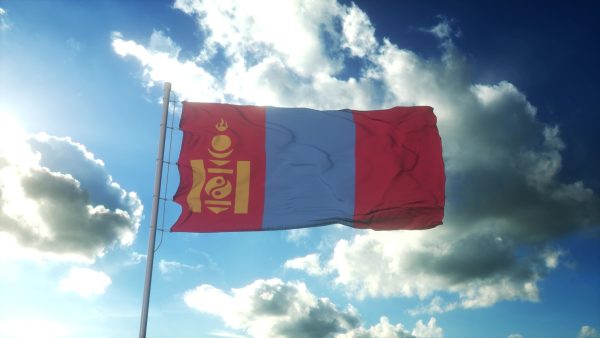The Mongolian government has been passing sweeping legislation during its spring 2023 session, including a major constitutional reform package. The legislature is now considering a National Anti-Corruption Strategy, aimed at combatting corruption across all facets of Mongolian public life through 2030.
The government has articulated its efforts to strengthen the previous anti-corruption strategy – dating from 2006 – with a long-overdue update. In February Prime Minister of Mongolia Oyun-Erdene Luvsannamsrai announced 2023-2024 as years to fight corruption by passing resolution No. 49.
In March, Mongolian Minister for Justice and Home Affairs Nyambaatar Khishgee participated in the Second Summit for Democracy’s Indo-Pacific Regional Meeting in Seoul, South Korea. He outlined the Mongolian government’s focus to tackle various causes of corruption through comprehensive reforms and introduced the new anti-corruption strategy publicly for the first time.
The Ministry for Justice and Home Affairs formally submitted the strategy to the State Grand Khural, Mongolia’s legislature, in April.
Diplomat Brief
Weekly Newsletter
N
Get briefed on the story of the week, and developing stories to watch across the Asia-Pacific.
Get the Newsletter
Amid these efforts, Mongolia’s Corruption Perceptions Index (CPI) score dropped from 35 in 2021 to 33 in 2022, according to Transparency International’s landmark annual report. Scores represent “the perceived level of public sector corruption on a scale of 0-100, where 0 means highly corrupt and 100 means very clean.”
According to an official source, the new anti-corruption strategy is a comprehensive reform that embodies newer elements such as “whistleblowing, removal of corrupt public officials, extradition and repatriation of those under indictment, asset recovery, and transparency.”
In recent years, major corruption scandals have led thousands to pour into Sukhbaatar Square in the Mongolian capital, demanding that the government tackle corruption. Some of these scandals directly involve whistleblowers. Hence, legislation protecting whistleblowers and their rights is not only linked to Mongolia’s democratic governance, but also encourages other people to denounce corruption in public service and their work environment.
According to Nyambaatar, the new anti-corruption strategy establishes 10 national goals with 45 objectives and 224 independent activities, which can enhance cooperation with civil society organizations and the media sector.
Advertisement
Moreover, the strategy includes measures to introduce the transparent appointment of civil servants, ensure greater protections for whistleblowers and journalists, and establish a new governance framework for state-controlled assets and educational initiatives to create a culture of anti-corruption in public life.
In Mongolia’s extractive economy, transparency is very much linked to corruption and thus the government’s anti-corruption efforts. The new proposed national anti-corruption strategy must show progress in its effort to align itself with international standards.
Moreover, the new strategy includes measures to standardize the operations of Mongolia’s state-owned enterprises (SOEs). The goal is to make all SOEs follow consistent rules throughout processes like the appointment and removal of public figures as well as tenders and procurement.
The new anti-corruption strategy also aims to increase collaboration with both domestic and international organizations such as Mongolia’s Independent Authority Against Corruption (IACC), Germany-based Transparency International, and the Brookings Institution, a top U.S. think tank. The collaboration with Brookings aims to embark upon a large research project, with the objective of achieving tangible measures for anti-corruption goals and having Mongolia engage in the Anti-Corruption, Democracy, and Security (ACDS) initiative.
In a 2022 interview with The Diplomat, Dashdaavaa Zandraa, the director general of the IACC, shed light on Mongolia’s increasing collaboration with international anti-corruption bodies, which in principle and practice, should strengthen transparency.
International rankings, like Transparency International’s CPI, affect Mongolia’s governance and how the world views the government’s actions. In May, chairman of the State Great Khural of Mongolia Zandanshatar Gombojav hosted a meeting with Herta Däubler-Gmelin, formerly Germany’s minister of justice, and Peter Eigen, the founder of Transparency International, to discuss the country’s ongoing efforts to combat corruption and the proposed amendment of its constitution (which has since been passed).
According to Montsame News Agency, “During the meeting, Mrs. Däubler-Gmelin and Mr. Aigen … acknowledged the efforts made by the State Great Khural and the Government of Mongolia in combating corruption in the past. They also pledged their readiness to offer any support and assistance from Transparency International’s headquarters in Ulaanbaatar and Berlin.”
Mongolia’s dedication to the “Year of Anti-Corruption” involves its parliament, which has a major role in strengthening the legislative framework to combat corruption at all levels.
Oyun-Erdene, Mongolia’s prime minister, has emphasized the government’s focus on anti-corruption initiatives within the extractive industry, given its significant contribution of 93 percent to the country’s total exports.
The new anti-corruption strategy, if passed by the legislature, can modernize Mongolia’s efforts in tackling major corruption at all levels of society. The hope is that the new strategy tackles corruption at the highest level, both in the government and in the public sector. The collaboration between the Mongolian government, the IACC, and international organizations gives hope for positive changes to come.
